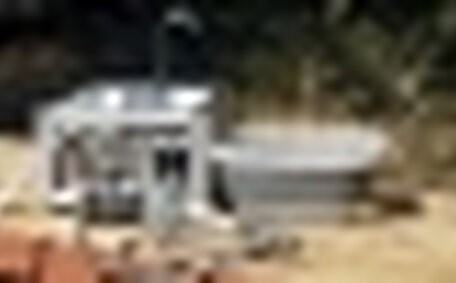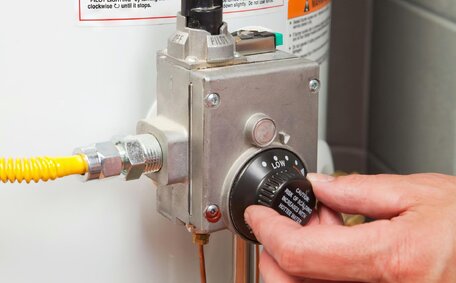Introduction to Emergency Gas Shut-Offs
Understanding how to perform an emergency gas shut-off is crucial for any home or business using gas appliances. An unresolved gas leak risks explosions, fires, and carbon monoxide poisoning, calling for immediate action and, if necessary, contacting emergency services.
That is why comprehending the steps for engaging the safety shutoff during an emergency is so important. For gas safety and shut-off procedures, Riverwood Plumbing’s qualified team is equipped and ready to assist. As a licensed gasfitter located in Riverwood, Sydney, we are collaborating with the gas association to understand Australian gas systems and their requirements.
This guide will outline essential steps to take if you suspect a major gas leak in your home or business. Following key safety advice, such as knowing how to turn off the gas, can prevent disasters and ensure the protection of your property and loved ones.
Detecting Signs of a Gas Leak
There are a few key signs that may indicate a dangerous gas leak in your home or business:
- A "rotten egg" smell - Natural gas and liquid propane have an added sulphur or 'rotten egg’ odour to alert you to a possible leak.
- Hissing, whistling or roaring sounds Emanating from a gas appliance which can easily signal a breach in the gas pipe.
- Unusual air disturbances or bubbles rising through water over a gas line or appliance.
- Dirt or debris blowing from a gas line or appliance.
- Uncharacteristic flames emerging from locations other than the designated pilot light or burners on a gas appliance.
- Browning or dead vegetation in an otherwise green area near your gas equipment.
Detecting any signs of a potential gas leak requires prompt action, irrespective of the gas variety. The smallest leak can also intensify into a perilous situation if measures to turn off gas promptly are not enacted. Turn the safety shutoff valve or evacuate the area if necessary.
Rely on a Riverwood Plumbing licensed gas fitter for emergency shut-offs and leak repairs. With substantial skills and experience in working with natural gas appliances and systems, Our experts provide top-tier service including emergency response, leak detection, and ensuring safety.
What to Do if You Smell Gas
If you detect the smell of gas in your home, immediate action is crucial to ensure the safety of your gas appliances. Follow these critical steps:
- Refrain from using light switches or electrical devices as tiny sparks can ignite gas, leading to a fire.
- Extinguish all naked flames, including cigarettes and candles, immediately.
- Ensure all gas appliance fittings, like your gas stove, are turned off.
- Open all doors and windows to create a cross-breeze that assists with ventilation.
- Move everyone away from the affected area and shift upwind, cutting off gas supply entirely to prevent it from reaching the vicinity.
- If feasible, cut off all gas flow by engaging the primary gas shut off valve to turn gas completely off.
- From outside or an upwind location, promptly call your designated emergency number.
- In addition, from a secure location, you should call your local gas supplier for further assistance and to promptly turn off water supply if necessary.
Our experts can handle gas meter readings and relight pilot lights in response to gas leaks. For assistance with fuel gas appliances or your system, please email us or call 1300 349 338.
Locating Your Gas Meter and Main Shutoff Valve
Comprehending the positioning of your meter and readiness for an emergency gas shut off is critical during a leak or crisis. Here’s how to locate and find out more about turning off gas valves:
Finding the Gas Metre
Gas meters are typically located outside your home. To better understand these locations, read our detailed guide on where you’ll typically find these:
- Near the front facade
- Alongside pathways or driveways
- On side walls
- By the backyard fence
Your installation typically incorporates dials for monitoring usage and nearby, concealed valve gas features located for quick access to gas. Digital 'smart meters’ feature LCD screens for display readings. It’s a good idea to regularly check your surroundings and keep any foliage trimmed away from your main gas metre for unhindered visibility.
Locating the Main Shutoff Valve
The main gas shutoff valves located strategically halt the supply to all gas appliances and gas connections. The gas shutoff valve located at:
- Near or on the gas metre
- On the gas line entering the building
- Adjacent to devices like your water heaters
- Located inside the garage or external metre box
It’s quintessential that the main gas valve must sport a safety shutoff feature like a solenoid valve, featuring a t-shaped handle that rotates 90 degrees to cease the flow when gas control is critical. Make sure your gas shutoff controls are easily set to access gas and accessible to all household members during emergencies.
The expert gas plumbers at Riverwood Plumbing can help inspect your gas heaters and other setup for gas leaks and identify your gas metre and emergency shutoff valves. Contact us if you need assistance.
How to Locate Your Gas Meter and Main Shutoff Valve
How to Safely Shut Off the Gas Supply
When shutting off your gas supply, prioritise safety by using an adjustable wrench or proper gas valve tool before adjusting the main valve.
This is usually located outside near the gas metre.
Expect resistance as the gas valve requires a firm, decisive twist to assure the supply is securely shut off.
Turn the valve handle counter-clockwise until it is perpendicular to the pipe, ensuring an immediate halt to the gas flow.
If you smell gas, turn off the supply, evacuate, and call emergency services immediately. Only shut off the gas if it’s safe; otherwise, wait at a safe distance upwind for professional assistance, prioritising safety.
Calling the Gas Company After a Shutoff
Immediately contact your gas utility company after safely shutting off your property’s gas supply. As the supplier, they are responsible for the gas line up to your gas metre. Inform them that you’ve performed an emergency shutoff so they can arrange to inspect for leaks and make repairs.
When you call, provide the operator with your:
- Name and contact details
- Address
- Details of the gas emergency
- Account number
Describe the signs of the leak you detected and the safety measures, such as ventilation, you’ve undertaken. Answer any questions openly and honestly so your gas company can fully assess the situation.
While gas utility technicians service supply lines, a professional gas fitter must inspect fittings to ensure safe use and safety for all appliances that use gas within your property.
Riverwood Plumbing’s team is fully qualified for all your gas service needs, including leak identification, repairs, and system safety.Contact us for servicing of gas appliances, fittings and more.
Immediately contact your gas utility company after safely shutting off your property’s gas supply. As the supplier, thas emergency \
Account number \
Ventilating the Area and Avoiding Ignition Sources
Following the shut-off, proper ventilation is essential to clear any remaining gas.
Open all doors and windows to facilitate airflow and, if possible, place fans near exits to expel gas quickly from the premises.
Avoid any ignition sources, including electrical switches, phones, candles, or cigarettes. Limit nearby vehicle traffic to avoid accidental ignition risks.
Ventilate upper levels first if gas leakage occurred there.
Ventilation and preventing ignition should continue until emergency services declare the area fully safe. Note that both natural gas and LPG rise and accumulate near ceilings initially. Note that both natural gas and LPG rise and accumulate near ceilings initially.
The veteran plumbers at Riverwood Plumbing are expertly trained in procedures to ensure the safety of your appliances’ gas connections. If you ever need assistance regarding a gas leak, system inspection or repairs, email us or call 1300 349 338 for our 24/7 services.
Gas Leak Repairs and Maintenance
Performing regular maintenance and prompt repairs is crucial for preventing fittings and installations periodically inspected by a licenced gas fitter.
During maintenance, a professional will check for leaks, assess wear and corrosion, and respond to unusual smells, addressing any issues right away.
To ensure the integrity of your system and uphold environmental protection, contact Riverwood Plumbing for adept leak detection and repairs.
As licenced gas fitters, we have the expertise to diagnose issues and conduct repairs to the highest standard.Email us or call 1300 349 338 for assistance.






